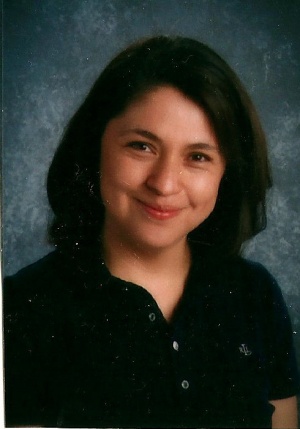By Sally Korte (IMS ’15)
Why is so difficult sometimes to solve misbehavior? Why can it be so difficult for a child to reach the stage of normalization?
This questions I ask myself everyday when I am observing Ricky in my class. This is his third year in my classroom and he keeps acting like he was in a baby stage. He doesn’t want to choose a work that is too difficult and he constantly asks for help from his friends. If I ask him a question he answers with a baby talk. Although I have used the IMS techniques constantly with him, he remains mostly lost in fantasy, not interested in lessons, and therefore not independent at all.
Ricky started his education in our school when he was two and a half years old. While I was immediately impressed by his ability of memorization and understanding of number concepts, in other areas he was very immature. So, I looked at his home life situation to help resolve the situation.
Ricky is the son of a single mother and visits his Father and Stepmother every other weekend. I knew that I needed to work with mom to bring about Ricky’s true nature. However, mom wasn’t very concerned with my observations, since she found Ricky’s misbehavior funny and cute; just like her when she was a child. “He will grow out of it” she stated.
In his second year, Ricky’s misbehavior was more noticeable. For example, he didn’t want to even try to put on his sweater by himself or prepare his snack. He just wanted to lay on the rug looking out the window. Again, while I spent all my time successfully correcting his misbehavior with the IMS techniques, I would have to start all over again the next day.
I thought that maybe if I spoke to Mom, Dad and Stepmother together, we could come with a plan and together help Ricky’s true inner child come about. In my discussions, Dad expressed a lot of guilt for not being able to spend enough time with Ricky, so he spoiled him by doing everything for him and making sure that their weekends together were full of fun. Ricky’s stepmother saw his misbehavior but didn’t know exactly how to correct it.
I asked them to give me specific scenarios and mentored them on what techniques to use to solve each situation. I could see how much they loved Ricky because they were very positive and excited to try out my directions
.
The week after our meeting a big change happened. Ricky was more independent and willing to put his work away and put on his coat without asking for help. However, he still didn’t want to work too hard with academic work. So, I met with his parents again and asked them why they thought that was. It was then that they told me that Ricky’s primary care giver was his maternal grandmother and that she was constantly promoting his dependency behavior. When I asked Ricky’s parents if they could show grandmother how to implement the IMS techniques, no one wanted to because they said she would not listen to them. So, I offered to visit with her and quickly they both agree.
When Grandma and I met, she did admit that she did everything for Ricky. So, we talked about how this was affecting his grandson’s behavior at school and how she could help Ricky at home using the IMS techniques. She agreed to follow my instructions, so it seemed like the final piece of the puzzle had been found!
Very soon, after Grandma started using my advice, Ricky experienced an explosion of love for learning. So, when he asked me to teach him how to read just like his friends, I gave him his first lessons with the sandpaper letters to form words. As he quickly started to read them, his face lit up with so much dignity, and soon we moved on to reading books. Every day when he arrived he would ask me to get a new book for him to read, which he would later take home to read to his family. A couple weeks later he was reading independently.
Today, I was giving a lesson to another student and observed something beautiful. Ricky was sitting down in the sofa reading to a younger classmate, helping the student to sound a word. When he saw his little friend reading the book very easily on his own, Ricky was so surprised by what he witnessed. “Mrs. Korte, he can read! How can he read if he is just three?” The little boy answered, “Ricky, you taught me how.” Ricky then smiled so big and stated, “I did.”
Sally Korte (IMS ’15) is a teacher and director of St. James Montessori School in Augusta, Kansas.

